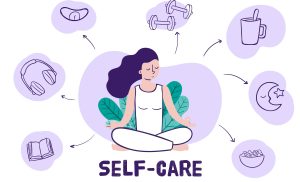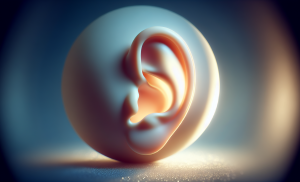What Is The Role Of Sleep Disorders In Exacerbating Stress, And How Can They Be Treated?
Are you struggling with stress and finding it difficult to get a good night’s sleep? It turns out that sleep disorders may be playing a significant role in exacerbating your stress levels. In this article, we’ll explore the connection between sleep disorders and stress, and uncover effective treatment options that can help you overcome both. So, if you’re tired of feeling overwhelmed and ready to reclaim your well-being, let’s delve into the fascinating world of sleep disorders and discover how they can be effectively addressed.
Understanding Sleep Disorders
Sleep disorders are conditions that affect the quality and duration of your sleep. They can have a significant impact on your overall well-being and can interfere with your daily functioning. It is important to understand the different types of sleep disorders, their causes, and the effects they can have on your life.
Types of Sleep Disorders
There are various types of sleep disorders that can affect individuals. Some common ones include insomnia, sleep apnea, restless leg syndrome, narcolepsy, and parasomnias.
Insomnia is characterized by difficulty falling asleep or staying asleep. It can lead to feelings of fatigue, irritability, and difficulty concentrating during the day. Sleep apnea is a disorder in which breathing repeatedly stops and starts during sleep. This can cause disruptions in sleep and lead to daytime sleepiness.
Restless leg syndrome is another common sleep disorder characterized by an uncontrollable urge to move your legs, especially at night. It can lead to difficulty falling asleep and can disrupt your sleep throughout the night. Narcolepsy is a neurological disorder that affects the brain’s ability to regulate sleep-wake cycles. Individuals with narcolepsy often experience excessive daytime sleepiness and may have sudden, uncontrollable episodes of falling asleep.
Lastly, parasomnias are sleep disorders that involve abnormal behaviors during sleep. This can include sleepwalking, sleep talking, nightmares, and night terrors. These behaviors can disrupt sleep and lead to feelings of fear or confusion upon waking.
Causes of Sleep Disorders
Sleep disorders can have various causes, ranging from stress and anxiety to underlying medical conditions and environmental factors.
Stress and anxiety are common factors that can contribute to the development of sleep disorders. When we are stressed or anxious, our minds tend to race, making it difficult to relax and fall asleep. The constant activation of the stress response can also disrupt the natural sleep-wake cycle and lead to insomnia or other sleep disturbances.
Underlying medical conditions, such as sleep apnea, restless leg syndrome, or narcolepsy, can also be a cause of sleep disorders. These conditions often require specialized treatment to address the underlying cause and manage the sleep disorder effectively.
Environmental factors can also play a role in the development of sleep disorders. Factors such as noise, light, temperature, and an uncomfortable sleeping environment can disrupt our ability to fall asleep and stay asleep. It is important to create a sleep-friendly environment that promotes relaxation and restful sleep.
Effects of Sleep Disorders
Sleep disorders can have a significant impact on various aspects of your life. The effects can range from impaired cognitive functioning to mood disturbances and increased risk of physical health problems.
Impaired cognitive functioning is a common effect of sleep disorders. Lack of quality sleep can lead to difficulties with memory, concentration, and problem-solving. It can also impact our ability to think clearly and make rational decisions, affecting our overall productivity and performance.
Mood disturbances are another common effect of sleep disorders. When we do not get enough sleep or experience disruptions in our sleep, our emotional well-being can be negatively affected. We may feel more irritable, moody, and have difficulty regulating our emotions. This can strain relationships and impact our overall quality of life.
Sleep disorders have also been linked to an increased risk of physical health problems. Chronic sleep deprivation has been associated with an increased risk of conditions such as obesity, diabetes, cardiovascular disease, and compromised immune function. It is crucial to address and manage sleep disorders to reduce the risk of developing these health problems.

The Connection Between Sleep Disorders and Stress
Sleep disorders and stress are closely interrelated. Not only can sleep disorders contribute to increased stress levels, but stress can also exacerbate sleep disorders. Understanding this connection is essential in finding ways to effectively manage both sleep disorders and stress.
Impact of Sleep Disorders on Stress Levels
Sleep disorders can significantly impact stress levels. When we do not get enough quality sleep, our bodies and minds are not able to adequately recover and recharge. This can leave us feeling fatigued and overwhelmed, making it more difficult to cope with everyday stressors.
Furthermore, sleep disorders can heighten emotional reactivity. When we are sleep-deprived, our ability to regulate emotions becomes compromised. This can lead to increased irritability, heightened sensitivity, and a reduced ability to manage stress effectively. It becomes a vicious cycle as increased stress levels can further disrupt sleep, creating a continuous loop of sleep deprivation and heightened stress.
Sleep disorders can also interfere with daily functioning, adding to stress levels. Quality sleep is essential for optimal cognitive functioning, productivity, and overall well-being. When we are sleep-deprived, our ability to perform tasks effectively and efficiently can be compromised. This can lead to increased stress and frustration, further exacerbating the impact of sleep disorders on stress levels.
How Stress Exacerbates Sleep Disorders
On the flip side, stress can exacerbate sleep disorders. Chronic stress can lead to increased levels of anxiety and worry, making it difficult to relax and fall asleep. Stress activates the body’s “fight or flight” response, releasing hormones that can disrupt the natural sleep-wake cycle and lead to insomnia or other sleep disturbances.
Additionally, stress can contribute to the development or worsening of underlying medical conditions that contribute to sleep disorders. For example, stress can increase the severity of sleep apnea or restless leg syndrome symptoms, further disrupting sleep. It is crucial to address and manage stress levels to reduce the impact on sleep disorders.

Treating Sleep Disorders to Reduce Stress
Treating sleep disorders is essential not only for improving sleep quality but also for reducing stress levels. Effective treatment can help restore the natural sleep-wake cycle, alleviate symptoms, and improve overall well-being. There are various treatment options available, ranging from non-pharmacological approaches to pharmacological interventions.
Diagnosis of Sleep Disorders
The first step in treating sleep disorders is obtaining a proper diagnosis. If you suspect you have a sleep disorder, it is important to consult a healthcare professional who specializes in sleep medicine. They can help assess your symptoms, conduct a thorough evaluation, and determine the most appropriate course of treatment.
Diagnosis may involve a sleep study, which can be done in a sleep clinic or sometimes in the comfort of your own home. This study can help identify any underlying sleep disorders, their severity, and guide treatment recommendations.
Non-pharmacological Treatment Options
Non-pharmacological approaches are often the first line of treatment for sleep disorders. These approaches focus on addressing underlying causes and promoting healthy sleep habits.
Cognitive-behavioral therapy for insomnia (CBT-I) is an evidence-based treatment approach that can be highly effective in treating insomnia. It involves identifying and changing negative thoughts and behaviors associated with sleep, implementing relaxation techniques, and improving sleep hygiene practices.
Other non-pharmacological treatment options can include creating a relaxing sleep environment, establishing a regular sleep schedule, practicing relaxation techniques such as meditation or deep breathing exercises, and avoiding stimulants such as caffeine or electronics before bedtime.
Pharmacological Treatment Options
In some cases, pharmacological interventions may be necessary to effectively manage sleep disorders. These medications can help promote sleep, reduce symptoms, and improve sleep quality. However, it is important to work closely with a healthcare professional experienced in sleep medicine to determine the most appropriate medication and dosage for your specific needs.
Prescription sleep medications, such as benzodiazepines or non-benzodiazepine sedative-hypnotics, can be prescribed for short-term use in certain cases. These medications can help induce sleep and manage symptoms of insomnia.
Melatonin supplements, which are available over-the-counter, can also be helpful in regulating sleep-wake cycles. Melatonin is a hormone that controls our sleep-wake cycle, and supplements can be used to promote sleepiness at night.
Alternative medicine approaches, such as herbal supplements or acupuncture, may also be considered as adjunct therapies for sleep disorders. However, it is important to discuss these options with a healthcare professional before starting any alternative treatment.
In conclusion, sleep disorders can have a significant impact on our overall well-being, including increasing stress levels. Understanding the different types of sleep disorders, their causes, and the effects they can have on our lives is crucial in finding effective treatment options. By addressing and managing sleep disorders, we can not only improve our sleep quality but also reduce stress levels, leading to a healthier and more balanced life. Proper diagnosis, non-pharmacological approaches, and, if necessary, pharmacological interventions can all play a role in treating sleep disorders and reducing the impact of stress on our sleep. Don’t hesitate to seek help from a sleep medicine professional to start your journey towards better sleep and reduced stress.


















